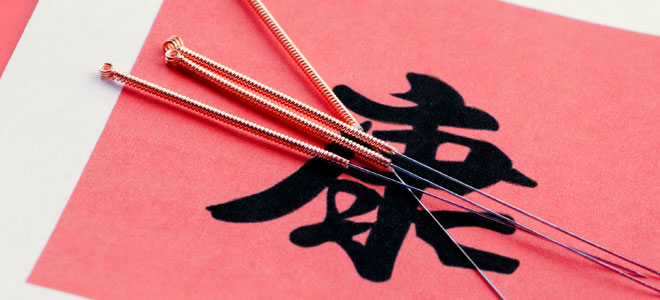Mental health is still surrounded by silence and, therefore, it is very difficult to realize that you are suffering from a disorder. But in this life everything has a solution, especially if you face it in time, and the same thing happens with Obsessive. Do you know how to overcome an OCD? You will have to put yourself in the hands of professionals, but this is the way in which you can overcome and cure this worrisome disorder.

What is OCD (Obsessive Compulsive Disorder)?
Obsessive Compulsive Disorder is a very limiting disease that suffers between 1% and 2% of the population and is characterized by obsessions and compulsions.
Obsessions are irrational thoughts, ideas, or images that settle in the mind, causing. The only way to reduce that anxiety is through compulsions or rituals. But these rituals are a real trap. Rituals or compulsions momentarily relieve anxiety even though in reality all they do is feed the obsession.
The most common example is contamination TOC. The person who suffers from it has the thought that if she touches something, she will become contaminated and sick. She finds a solution to that obsessive thought in a ritual, in washing her hands from her to avoid contamination. And at first she manages to ease the fear and anxiety, but the next time she touches something she’ll have to wash her hands again. And so to the point of interfering with their daily activities.
Most frequent types of OCD
There are many types of Obsessive Compulsive Disorder, but we will tell you about the most frequent ones.
Cleaning OCD. This disorder is closely linked to pollution OCD. The obsessive thoughts are the same, the fear of contracting a disease that leads to the need to compulsively clean the house, the workplace or one’s own body.
Command TOC. The disorder generates anxiety in all people, but in the case of OCD, anxiety is linked to catastrophic thoughts that are very close to superstition. If everything is not in the supposedly correct order, something terrible will happen.
Check OCD. How many times have you checked that you have closed the door? It happens to all of us when we are a little nervous or worried about something, that we have to go back to see if we have locked the door. In the case of OCD, the checks are multiplied and it is not only about the keys, but also about the light switch, the gas or the email you have sent.
Accumulation OCD. Closely linked to Diogenes Syndrome, accumulation OCD has obsessive thoughts related to safety. Throwing or getting rid of things generates an insecurity that is impossible to bear, so everything is saved, everything accumulates.
Repeat OCD. This OCD also has a superstitious edge. Repetition rituals can range from tics such as touching your nose or forehead to repeating the last words of a sentence.
Is OCD cured? Some tips to get over it
All Obsessive Compulsive Disorders have different degrees of intensity and are closely related to phobias and manias. The sooner a treatment is sought, the more guarantees there will be to overcome that OCD, hence the need to seek psychological help.
The most common therapy to overcome OCD is Cognitive Behavioral Therapy, which works first on obsessive thoughts to then move on to modify behaviors, in this case compulsions. And in all cases, some aspects of the treatment must be taken into account.
You can overcome your disorder; this is the first thing you must be very clear about. Obsessive thoughts can be transformed with the right therapy and you are not condemned for life to perform compulsive acts or rituals. It’s going to be hard, it’s going to be long, but you’ll get over OCD.
There is a therapy that is used in conjunction with others that is Acceptance and Commitment Therapy. It will help you accept your obsessive thoughts without judging yourself. Do not be afraid of your obsessions, because you will soon discover that you can reduce the impact they have on you.
You are going to have to work a lot on your inner speech, on what you say to yourself and on dismantling those irrational thoughts and those fears that have no real basis. The feeling of danger is what activates anxiety, but it is clear that we do not live in constant danger. The psychologist will help you see it from another perspective.
What if the compulsions are not the only way to reduce the anxiety that obsessive thoughts cause you? Perhaps you have decided to wash your hands, because everything has the same order in your house or to check a thousand times if you have closed the car door, but there may be another way to calm down . Although it will be better to go little by little.
Some exercises to heal from OCD
We insist that if you want to overcome an OCD it is best to do it with the help of a psychologist, but there are also some exercises that you can do on your own.
You have a disorder, but that doesn’t define you as a person. You are no less valid for having obsessive thoughts. If you stop believing yourself to the letter, your thoughts will stop being so important because deep down you know that your thoughts do not cause the danger that you are imagining, right? We know that this can be very complicated, so we invite you to at least leave those thoughts in doubt or in quarantine.
Accept those irrational thoughts and look at them as if they were not yours, as if they were someone else’s. Are they still in your head? Stay in your observer position, observe these obsessions as a spectator and let them walk through your mind to verify that they cannot harm you.
Don’t fight those thoughts because they will get stronger. Just take them for what they are, words in your mind. And you know that words are carried away by the wind. Be very aware that, with help, those obsessive thoughts are not going to be there forever.
After the obsessions, you have to take care of the rituals. What if you postpone the ritual? Just eleven. Check that absolutely nothing happens if one day you decide to wait a little longer to perform the compulsion, just a few minutes. When you are about to do the ritual, wait and count down from 100, for example. You will see that while you are counting nothing bad happens.
In relation to the previous point, a recommendation is that if checks are made, whether they are cleanliness (check that before leaving home, it is clean or in order), or security (check the gas tap, for example, to check that it is off), etc.; that they be done only once even if it is longer. A single check is better, even if it is two minutes in a row looking at the gas tap, than getting up ten to check it (compulsion).
Can you slow down? Do the rituals more slowly and consciously of what you are doing. Generally, you perform the compulsions compulsively and with some haste and anxiety. Try one day to do it slowly and paying attention to what you do, as if you were doing something that you really want to do and not on impulse.
Modify your ritual. It is important to gradually eliminate parts of the ritual, each week removing one thing, instead of substituting one ritual for another, since you can learn a new one and maintain the OCD. If you want to change the ritual, the ideal is to start modifying the order or alter it, but not introduce new things. For example, it may be good to start by modifying the order to gradually remove parts of the ritual.
With these strategies you will verify that your thoughts are unreal, that your compulsions are not rigid and mandatory and, above all, that you are recovering some control not over your thinking, but over your rituals. But remember, you will have more guarantees of overcoming OCD if you seek psychological.






